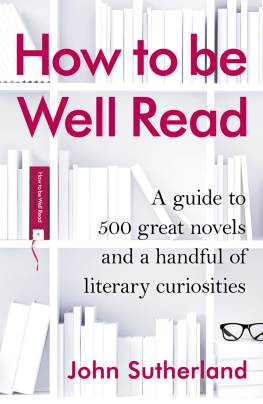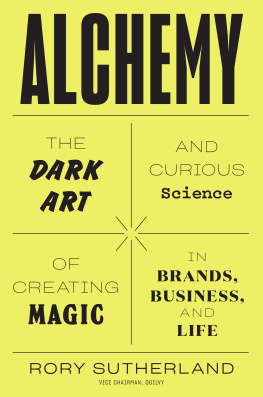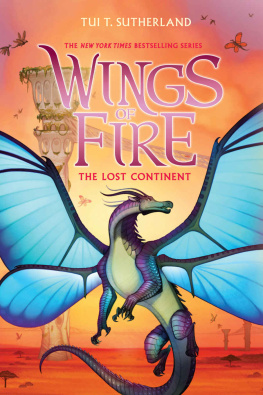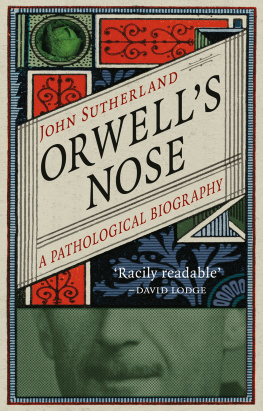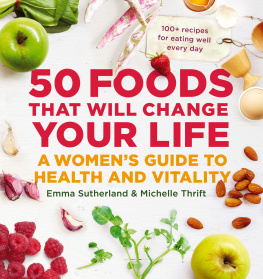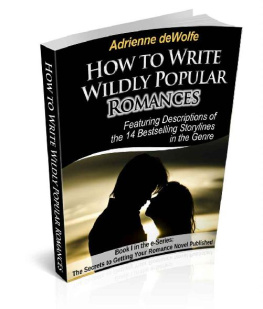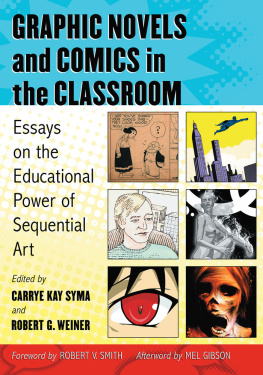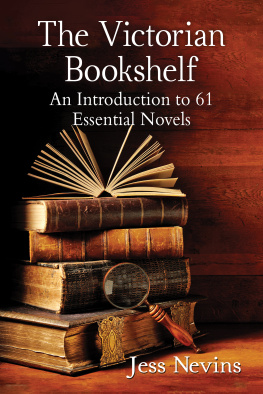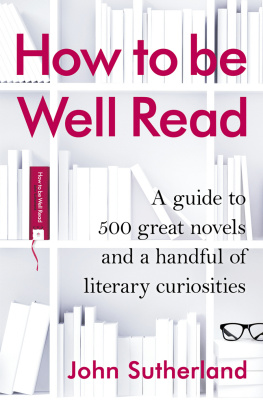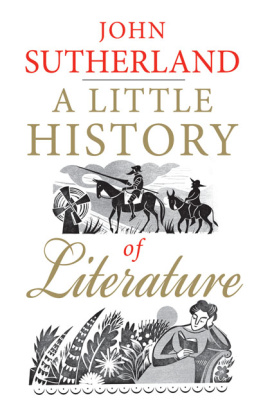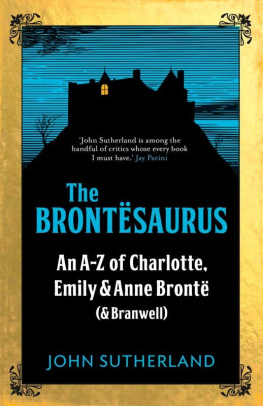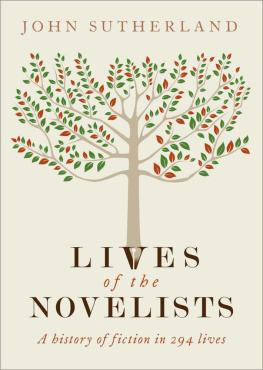Aarons Rod, D. H. Lawrence,1922
Aarons Rod is a novel fated, like aardvark in dictionaries, always to come first in any alphabetised collection. Rarely, however, is it the first novel reached for by Lawrentians. It was conceived in 1917, the bleakest year of the war. Lawrence had eloped with a married German woman (whom he persuaded to abandon her children) to set up a commune in Cornwall. The move culminated in his trying to throttle his fellow communard, John Middleton Murry an event immortalised in the genital-dangling wrestling scene in the Ken Russell film of Lawrences Women in Love. Ranamin (as the utopian community was called dont ask why, its complicated) led, by a series of misadventures involving semaphoric underwear on washing lines, drawn curtains, blackout violations, and submarines, to the Lawrences being persecuted as German spies. It was a bad time for a suspected conchie to be married to a woman called Frieda von Richthofen a distant relative of the fabled Red Baron flying ace.
Aarons Rod was finally published in 1922 at the period in his life when Lawrence had resolved to shake the dust of England (coal dust, specifically) off his shoes for ever. The narrative opens crisply in the authors, and the heros, mining country:
There was a large, brilliant evening star in the early twilight, and underfoot the earth was half frozen. It was Christmas Eve. Also the War was over, and there was a sense of relief that was almost a new menace.
Aaron Sisson, a collier checkweightman, ups and leaves, with nothing but his flute and piccolo, to become a musician. He deserts his wife and daughters. His reasons are, literally, obscure. These harmless female impedimenta elicit a dark rage in his soul. He craves light. In floodlit London, Aaron finds employment as a flautist in metropolitan opera. It is as likely an event, in the real world, as banjoist George Formby leading the London Philharmonic. Aarons new career is interrupted by a bout of Spanish flu (an epidemic which killed more Englishmen than the Kaiser). His recovery marks his rebirth. Aaron moves, sardonically, among the chattering Bloomsbury intelligentsia, whom he finds unsatisfactory, before drifting on to Florence, the city of renaissances, where he finds living with a Marchesa similarly ennuyant. The narrative climaxes with a proto-Fascist bomb outrage in which his flute is smashed.
Aarons Rod focuses on the dilemma which every major novelist of the time faced: home or away? Follow your soul, the heros Virgilian guide advises. But what, precisely, does that mean? Is Aaron destined for exile, pilgrimage, or the kind of purification inflicted on the Israelites during their forty years in the desert? In that purgatorial episode, biblical Aaron features as the older brother of Moses, whose rod outdoes the wands of the Egyptian soothsayers, brings down three of the plagues, and finally flowers. Where, and how, will the Lawrentian rod flower? Not, one gathers, in the pits whether of the mine or the orchestra.
Abba Abba, Anthony Burgess, 1977
Abba Abba was written during a period of his career when Burgess had become the darling of the literary theorists attention he relished rather more than most novelists do. In its first half, the story centres on the last months of the poet Keats spitting out his lifeblood in Rome, accompanied, as he historically was, by the artist Joseph Severn. One of the principal conclusions Burgess novel comes to is that the writer, like wine, needs decades of lived existence to progress from precocious brilliance to seasoned maturity. Its not a young mans game. At one point in Abba Abba Keats, barely out of boyhood, is conducted round the Sistine Chapel to wonder at what Michelangelo achieved in his later years. His guide is a friend he has made in Rome, Giovanni Gulielmi. In the chapel, he encounters the local poet Giuseppe Gioachino Belli. Keats died in his mid-twenties. What would he have done given seventy more years of writing life? Or even the seventy-two in total that Belli enjoyed?
Keats brief encounter with Rome (in Burgess version) thrusts into prominence two other needful things: dirt and sex. The poets own name, as mangled by local dialect, comes out as cazzo slang for penis. It inspires a Keatsian vers doccasion:
Here are some names, my son, we call the prick:
The chair, the yard, the nail, the kit, the cock,
The holofernes, rod, the sugar rock,
The dickory dickory dock, the liquorice stick.
It goes on (Burgess always does go on) cataloguing penis synonymy for many lines more. More years of life, and more hanky-panky (something of which he had been sadly starved by the Brawne woman), and Keats would have been an author in the Burgess class, we apprehend. He himself was a ripe sixty years old at the time of writing Abba Abba. Why the odd title? A repetition of Abba, as in the above penile quatrain, is the rhyme scheme of the first octave of the sonnet a form used by both English and Italian poets. It is also the Aramaic ejaculation (Lord, Lord!) of the dying Christ on the Cross. Christ, like Keats, was taken early. The second half of Abba Abba comprises English translations of some seventy Belli sonnets by John Wilson, a descendant of Keats friend Giovanni Gulielmi (i.e. John Wilson), whose C.V. is precisely that of Anthony Burgess, whose birth-name was John Anthony Burgess Wilson.
ABBA was also, of course, a Swedish pop group, formed in 1972, the name assumed as an acronym of the initials of their Christian names. After winning the 1974 Eurovision Song Contest Abba had a string of hits in the mid-1970s. Mamma Mia was in 1975 particularly popular in Italy, where Burgess was resident. In 1977 one would have had to be immured in a dungeon in the Chteau dIf with an iron mask on ones head not to have known about the Swedish songsters. Constitutionally mischievous, Burgess certainly did. ABBA is also a palindrome for the initial letters of Anthony Burgess Burgess Anthony. Clever, clever.
Absolute Beginners, Colin MacInnes, 1959
A spectre has arisen in our cities the spectre of lawless, carefree youth... In Absolute Beginners Colin MacInnes has gone right inside the teenage world of coffee bars, motor-scooters, casual and alarming elegance and race riots... Though the language is jazz and the mood very hip, this is the truest, shrewdest and kindest eye that has looked over the new world made by the kids themselves right slap in the middle of the enemy.
So ran the blurb on MacGibbon & Kees first edition. Which idiot wrote this balderdash is not recorded, but it is clear it was no teenaged idiot. Nor, as it happened, was the kind-eyed MacInnes in the first flush of youth. He was forty-five years old in 1959. Absolute Beginners is the second in MacInnes so-called London trilogy an overture to the soon-to-swing 1960s along with City of Spades and Mr Love and Justice. The unnamed hero-narrator is a teenage photographer. There are echoes of Christopher Isherwoods Herr Issyvoo of I Am a Camera fame but the character is based more directly on Sohos prince of the beatniks, Terry Taylor. He is on the verge of being twenty. Ill soon be out there among the oldies, he laments. The narrative opens with the narrator in discussion with the Wiz in Simpsons restaurant. The Wiz is sixteen. No oldie he. Even younger is the chart-topping singer they are talking about as a sign of the times, Laurie London, whose April 1958 Number One, Hes Got the Whole World in His Hand, came out when the singer was thirteen years old, if old is the right word here.

